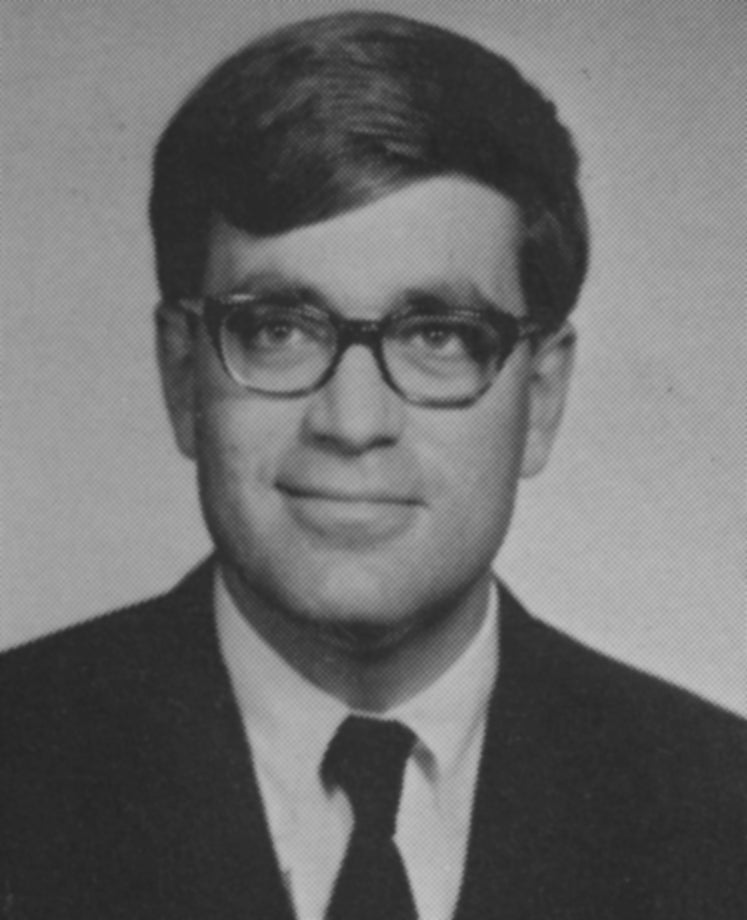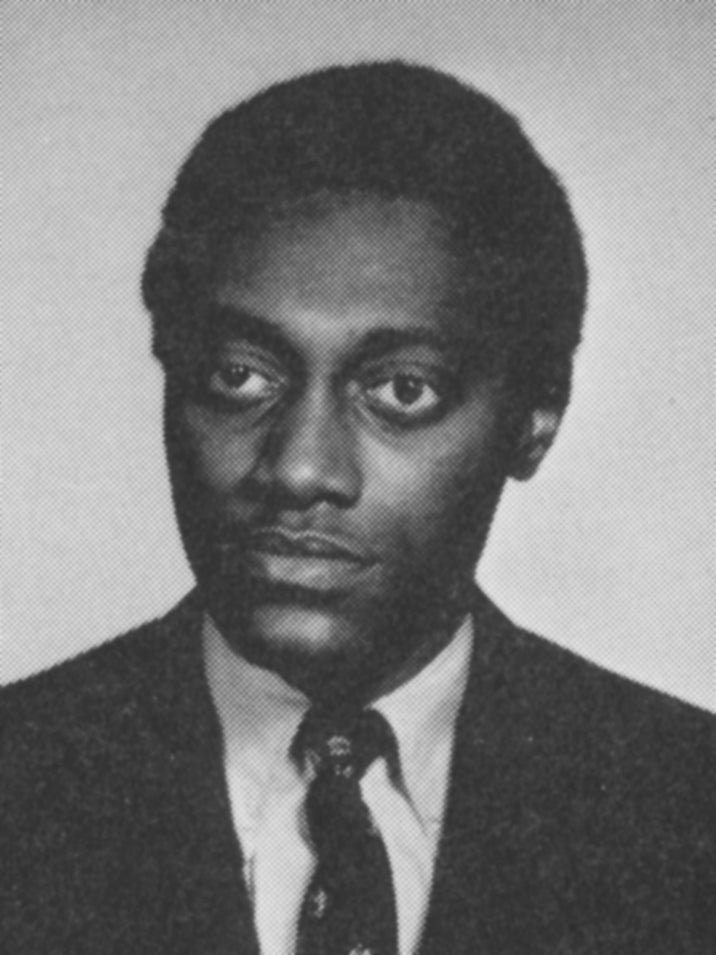Not everyone at the Harvard Law School in the mid to late 1960s understood that a student named James Alan McPherson—a young African-American man who would later go on to be the first in our class to receive a MacArthur “genius” grant—was in fact a genius. Jim spoke so softly when called on during the first week of Civil Procedure with the legendary Benjamin Kaplan that he could barely be heard, and his deep south Savannah, Georgia accent, sprinkled with hints of the Gullah dialect, made his answers almost impossible for many to understand. Jim was one of a small number of African-Americans in our class; I was one of the almost five hundred white students.
After one of those initial 1L classes, I introduced myself to my fellow Southerner, and the two of us joked that in view of our Southern accents, we might have to translate for one another if and when called on by another law school legend, Alan Dershowitz, our criminal law professor. It was the beginning of a friendship that lasted until his death.

Most of us Harvard Law students in those days were focused on receiving the kind of grades that would assure us the next step on the ladder. At the same time, it was also the 1960s, and so civil rights was a topic at meals in Harkness Hall, where we ate when there was no time to go anywhere else. As I recall, Jim did not go out of his way to sit with the African-American students at meals. I never asked him why, but I wonder if it may have been his way of reasserting a faith in racial integration rather than racial separation, even if it sometimes meant that he ate alone. I also suspect from things he did say that he perceived, whether correctly or not, that some of the African-American students looked down on him for having earned his B.A. from a comparatively working class college, rather than from one of the more prestigious predominantly African-American undergraduate institutions. Although I did not understand all of his reasons, it suited me fine for just the two of us to eat together. It was always a delightful educational experience to listen to him talk about civil rights, Harvard, literature, becoming a writer or anything else on his mind. I especially remember during those meals how Jim could be gently sarcastic (and funny) when talking about the differences between students who attended the elite, historically black colleges and those he fondly referred to as the “street smart” colleagues and “gangsters” whom he met in his college.
His feelings about graduates of elite black schools, whether justified or not, did not go away for years, if ever. Not long after he won the Pulitzer Prize and had become a famous author, he was invited jointly by Morehouse, the top ranked, historically African-American college, and Emory University to speak about his work, and my wife, older daughter and I went to hear the Emory presentation. Jim arrived more than an hour late and I could tell from his agitated expression and mannerisms that he was upset. After a few moments of tense back and forth at the podium, the unhappy moderator made an announcement to the effect that Emory was very sorry but that Mr. McPherson might not be speaking after all; that Emory appreciated his coming to the campus; and also appreciated all of us for coming and waiting. At that point, I left my seat in the auditorium, approached Jim, tapped him on the shoulder and rather vigorously complained that I had waited for him for more than an hour and really wanted to hear what he had to say. He reacted immediately and enthusiastically to a familiar face, embraced me, and proceeded to speak for more than an hour to the spellbound audience. We spent the rest of the day together, Jim staying at our home that night, refusing the nice hotel room kindly arranged by Morehouse.
During the years that I knew him at the law school, Jim was not only caustic about perceived snubs by elite African-Americans, whether graduates of famous, historically African-American colleges or the Ivy League; he also did not spare those of his white classmates whom he surmised to be faux liberals, especially when they boasted to him about all they had done for civil rights.
Although Jim is sometimes compared with Faulkner, I remember that he preferred that night the prose style of Hemingway.
But if Jim did not suffer in silence people he considered to be high-flown or poseurs, whether black or white, he was also hopeful and optimistic about most people, black and white. During that same Emory trip, we went to my law office on Peachtree Street in downtown Atlanta. While waiting in the lobby for the elevator, two men dressed in working class clothes, one black, one white, apparently men who had not previously met, began exchanging pleasantries about sports as they, Jim and I entered the elevator. After they exited the elevator on a different floor, still amiably talking, Jim, obviously struck by and impressed with their spontaneous cordiality, remarked admiringly that Atlanta, even though it had become a large city, had retained the character of a “Southern village.” Apart from being a welcome, if subtle, positive statement about race relations, Jim’s comment demonstrated his talent for observation, a hallmark of the great writer that he was.
Jim also had a sweet and tender side. I will never forget that when I awakened the morning after the Emory presentation, I found Jim and my young daughter sitting on the living room sofa where the Pulitzer Prize winner was reading to her from a children’s book.
In the spring of 1968, the night after our final third-year exams, Jim came by my apartment in Cambridge, where we celebrated our friendship and survival at the law school by ordering Chinese takeout and Mexican beer and by debating, far into the night, the merits of William Faulkner versus Ernest Hemingway. (Although Jim is sometimes compared with Faulkner, I remember that he preferred that night the prose style of Hemingway; I also remember that my date fell asleep on the sofa out of boredom). In that same spring of 1968, I thought we were just two slightly full of ourselves, aspiring writers who might never publish a thing. Later that same year, however–by then I was working at the Urban Institute in Washington–I was stunned to see an article somewhere, probably in The Washington Post or maybe in The New York Times, to the effect that Boston might once again rival New York as a publishing center, thanks to the signing by Atlantic Monthly of the important new author James Alan McPherson. I am embarrassed to say that my first reaction was a twinge of jealously; but I recovered quickly, contacted him and of course wished him the best.
That was the Jim I knew: observant, unsparing critic of the powerful; compassionate sympathizer with the disadvantaged; a genius advocate for his beliefs.
From that time on, we stayed in touch, although in part by my reading of his accomplishments and sending congratulations, for Jim was in the forefront of the literary world, with articles in The Atlantic, Tikkun and other respected magazines on subjects ranging from the experiences of African-American students at the law school in those years, to Chicago gangs, to Ralph Ellison, his mentor. Not long after Jim became the first African-American writer to win the Pulitzer Prize for fiction (the award was for his short story collection “Elbow Room”), he was included among a group of authors, scientists and historians awarded one of the inaugural MacArthur fellowships. Other literary recipients in that first class were Robert Penn Warren and Joseph Brodsky.
Of all of the wonderful articles, essays and stories that he wrote, my personal favorite is one from his very first book, “Hue & Cry,” published by Atlantic Monthly Press in 1969, the year after we graduated Harvard Law School. The story “Gold Coast” (selected by John Updike for the collection “Best American Short Stories of the Century”) and included in “Hue & Cry,” is about a “fictional” young African-American man who dreamed of someday being a famous author, but who was, at the time, working as a janitor in a building in Harvard Square. Jim actually worked as a janitor in Harvard Square, and I suspect that “Gold Coast” was to some degree autobiographical.
In the story—both as recorded in print and as preserved in my memories of conversations with Jim—the young African-American dreamer was from time to time invited to fancy Cambridge parties by well-intentioned white sixties liberals who wanted to proudly display a few black guests. When asked by other guests what he did for a living, Jim wrote that the young protagonist would “hook my thumbs in my vest pockets and say comfortably: ‘Why, I am an apprentice janitor.’” Describing what followed, Jim wrote: “The hippies would think it degenerate and really dig me and people in Philosophy and Law and Business would feel uncomfortable trying to make me feel better about my station, while wondering how the hell I had managed to crash the party.”
In “Gold Coast,” Jim explained, on behalf of his fictional character, that at first he became a janitor because he did “not have to be one,” but he added, “Much later, I think it might have been because it is possible to be a janitor without becoming one….”
Of the many other stories by Jim that I’ve enjoyed over the years, one that resonates poignantly is “An Act of Prostitution,” also part of the “Hue & Cry” collection. In preparing this article, I looked up the story. Encyclopedia Britannica says it is “about the inconsistencies of the justice system,” and it certainly is that. But what I remember is the sense of the title as a metaphor: a pitiful defendant being treated with contempt by her own lawyer as well as by the assistant district attorney and the judge. It was the system of law, as visited daily upon the poor, that came across, at least in my memory of the story, as the act of prostitution. In any event, that was the Jim I knew: the observant, unsparing critic of the powerful; the compassionate sympathizer with the disadvantaged; a genius advocate for his beliefs.
Joe Beck ’68 is senior counsel at Kilpatrick Townsend and the author of “My Father and Atticus Finch (W.W. Norton, 2016).
